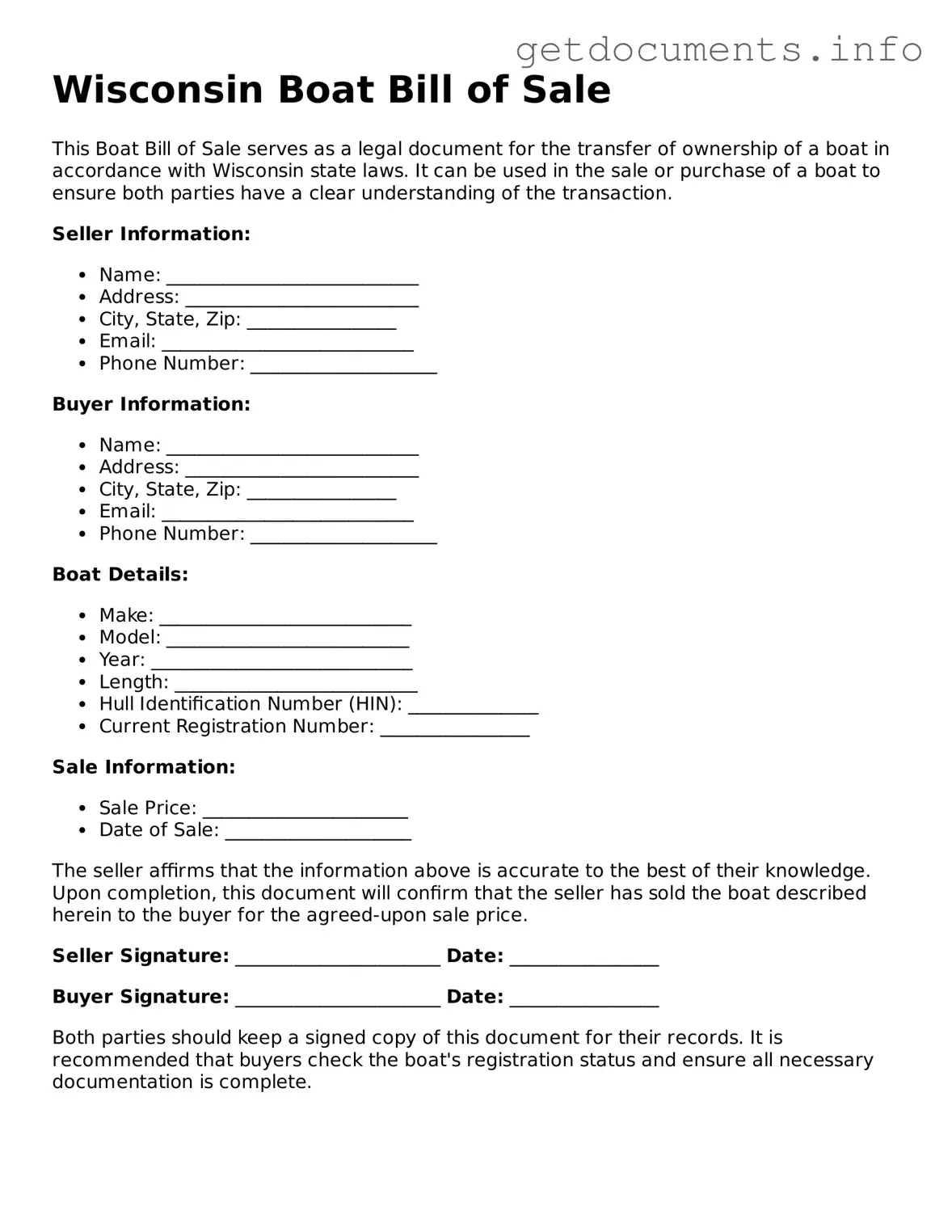Free Boat Bill of Sale Template for Wisconsin
The Wisconsin Boat Bill of Sale form is a crucial document that records the transfer of ownership for a boat in the state of Wisconsin. This form serves as proof of the sale and includes essential details about the buyer, seller, and the boat itself. Ensure you have this document completed accurately to facilitate a smooth transaction.
Ready to fill out your Wisconsin Boat Bill of Sale? Click the button below to get started!
Access Boat Bill of Sale Editor

Free Boat Bill of Sale Template for Wisconsin
Access Boat Bill of Sale Editor
Got places to be? Complete the form fast
Fill out Boat Bill of Sale online and avoid printing or scanning.
Access Boat Bill of Sale Editor
or
⇩ PDF File
